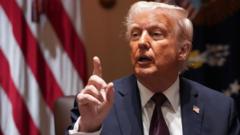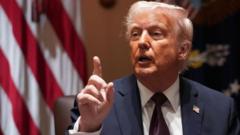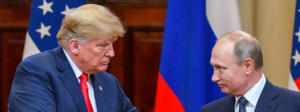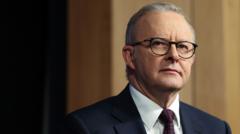Canadian Prime Minister Mark Carney declares the end of a long-standing economic relationship with the United States due to aggressive tariffs imposed by President Trump, signaling a strategic pivot for Canadian trade.
Canada Shifts Trade Strategies Amid U.S. Tariffs
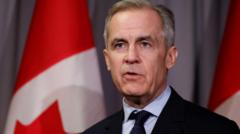
Canada Shifts Trade Strategies Amid U.S. Tariffs
Prime Minister Mark Carney announces a fundamental change in Canada's relationship with the U.S., calling for a reimagining of the economy in response to tariffs.
Canadian Prime Minister Mark Carney has boldly announced that the established Canadian relationship with the United States is "over," stemming from the ongoing trade tensions triggered by U.S. President Donald Trump's new tariffs. In a press conference held in Ottawa following a cabinet meeting, Carney emphasized the need for Canada to fundamentally rethink its economy and trade relationships in light of the challenges posed by the Trump administration's policies.
Carney's remarks came shortly after Trump declared that a 25% tax would be imposed on imported vehicles and auto parts, which he labeled as a permanent measure. With a nod to the historical significance of the 1965 Canada-U.S. Automotive Products Agreement, Carney lamented its demise, stating that the current tariffs mark a significant shift in trade dynamics. "That's finished with these tariffs," he said in French.
In response to the U.S. tariffs, which had already imposed a blanket tax on various Canadian goods, Carney pledged that retaliatory actions would be aimed at creating "maximum impact" on U.S. interests. He stressed that rethinking Canada's trade relationships with different partners is essential to building a self-reliant economy.
The imminent tariffs set to take effect on April 2 for vehicles and on parts in May, add to the escalating trade war and prompted Carney to adjust his campaign strategy ahead of the upcoming general elections. Trump, wary of a unified front from Canada and the EU, issued a warning via his Truth Social platform, stating that harsher tariffs would follow if any economic collaboration aimed at the U.S. was formed.
Additionally, opposition leaders have criticized the tariffs, with Conservative leader Pierre Poilievre denouncing them as "unjustified," while left-leaning NDP leader Jagmeet Singh condemned the tariffs as a betrayal of allyship. Singh pledged to protect Canadian jobs from companies potentially relocating due to the tariffs.
With Canada gearing up for elections on April 28, the political landscape is reshaping in response to the burgeoning trade crisis, igniting discussions not only on economic strategy but also on national sovereignty in trade relations. Meanwhile, Mexico's President Claudia Sheinbaum echoed concerns regarding the tariffs, asserting the need for protective measures for Mexican businesses impacted by U.S. trade policies. As the situation evolves, the implications of these tariffs may have far-reaching consequences not just for Canada, but for North America as a whole.






